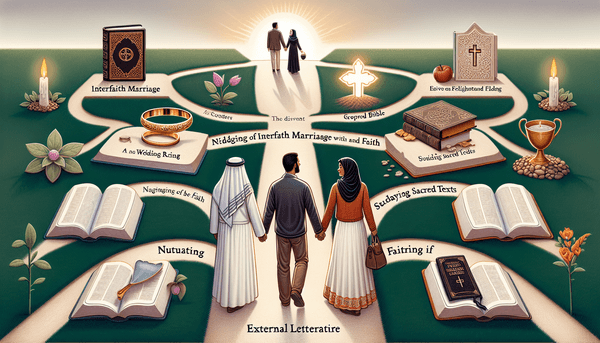The New Heaven and New Earth
In the book of Revelation, John presents us with a breathtaking vision of a New Heaven and New Earth, a divine promise that has captivated the hearts of believers for centuries. This prophetic imagery speaks of a profound transformation where 'the first heaven and the first earth had passed away, and the sea was no more' (Revelation 21:1). It's a place where 'He will wipe every tear from their eyes. There will be no more death or mourning or crying or pain, for the old order of things has passed away' (Revelation 21:4). The scriptures paint a future where all of creation is renewed, echoing the hope found in Isaiah 65:17 and 2 Peter 3:13, where righteousness dwells and the former things are forgotten. This vision serves as a beacon of hope, a reminder that not only will the physical realm be made new, but also that the spiritual ailments of humanity—sin, pain, and suffering—will be eradicated forever.
The Difference Between Goodness and Kindness
Goodness and kindness are virtues often spoken of in the same breath, yet they carry distinct meanings that reflect the character of God and the life He calls us to lead. Goodness, in its essence, refers to the quality of being morally good and righteous, a virtue that calls for action that is just and fair, and a life lived in harmony with ethical principles. Kindness, however, zeroes in on the quality of being friendly, generous, compassionate, and considerate. It's about the warmth and understanding we extend to others, the empathy and sympathy that we show—the 'fruit of the Spirit' that Galatians 5:22-23 speaks to. In the Christian walk, these virtues are not mutually exclusive but are rather intertwined, reflecting a life of love, joy, peace, forbearance, and self-control, against which 'there is no law.'
What the Bible Says About Goodness
The Bible frequently addresses the concept of goodness and its importance in the life of a believer. Romans 12:21 challenges us to 'not be overcome by evil, but overcome evil with good,' suggesting that goodness is not a passive quality but an active force for change. In Psalm 145:9, we are reminded that 'The Lord is good to all, and his mercy is over all that he has made,' affirming that goodness is intrinsic to God's nature and, by extension, to those who follow Him. The epistle of James offers practical wisdom on this subject, urging the wise and understanding to demonstrate their goodness through a 'good life, by deeds done in the humility that comes from wisdom' (James 3:13). This concept is further encapsulated in the fruit of the Spirit, which includes goodness as a hallmark of a life led by the Holy Spirit, reflecting God's own goodness in our actions and interactions. To deepen your understanding of how these principles can transform your life, consider exploring the transformative power of the Bible in nurturing faith and positivity.
The Virtuous Woman
Proverbs 31 paints a vivid portrait of the virtuous woman, setting a high standard for character and conduct that has inspired countless women throughout history. She is described as possessing strength, dignity, and wisdom, qualities that are celebrated and esteemed. This woman is not only industrious and generous, 'opening her arms to the poor and extending her hands to the needy' (Proverbs 31:20), but she also fears the Lord, which is the foundation of her virtue. Her value is said to far exceed that of rubies, making her a beacon of light in her community and an example to be followed. Through her speech, cloaked in wisdom and faithful instruction (Proverbs 31:26), and her actions, which are clothed in strength and dignity (Proverbs 31:25), the virtuous woman embodies the essence of godly character and leaves a legacy of virtue for others to aspire to.
Conclusion
As we draw our exploration to a close, we reflect on the profound biblical teachings that encompass the promise of a new creation, the essence of goodness and kindness, the call to live a life marked by goodness, and the principles of the virtuous woman. These themes intertwine to create a tapestry of Christian virtue, providing guidance for the present and hope for the future. By seeking to embody these principles in our daily lives, we align ourselves with God's will and character, becoming beacons of His light in a world that often dwells in darkness. For further insight, we can explore themes of spiritual awakening, the formidable power of words, and transformation in Christ, which offer additional layers of understanding to our faith journey. May we carry with us the wisdom gleaned from these sacred texts, allowing them to shape our journey and inspire our walk with the Lord.






